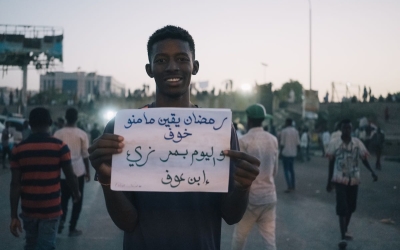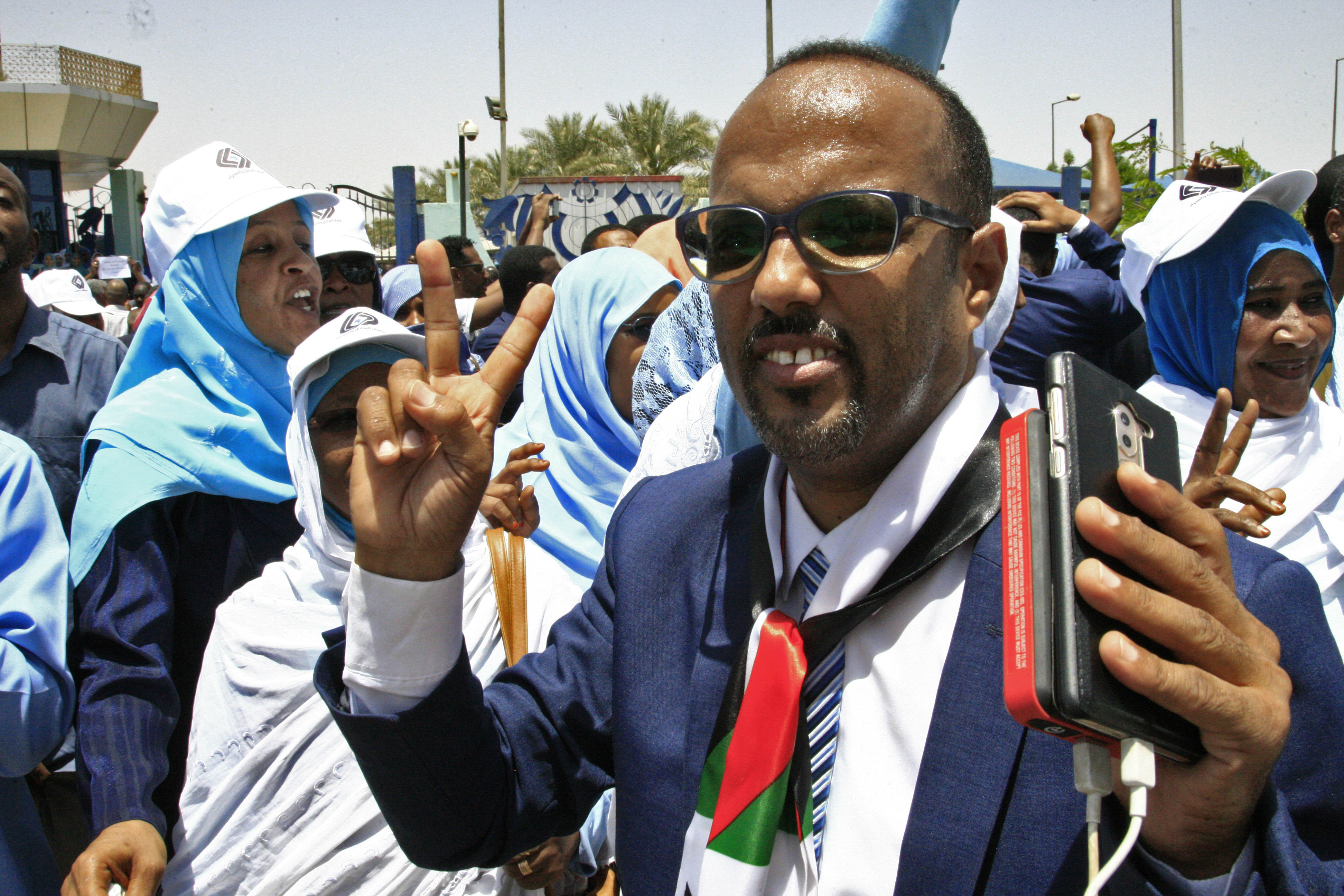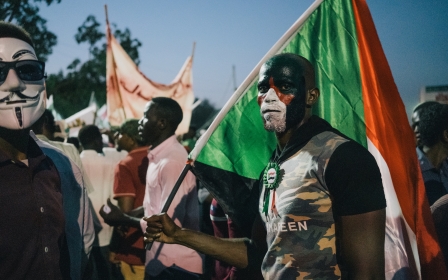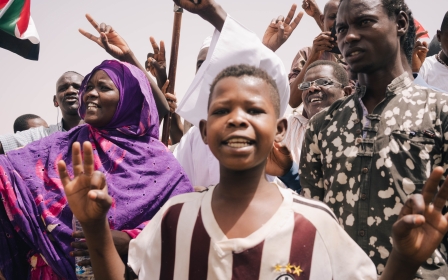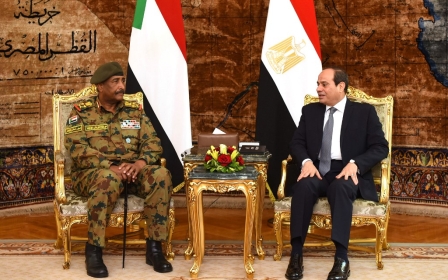Sudanese protesters dismiss attempts to stifle them as strike hits second day
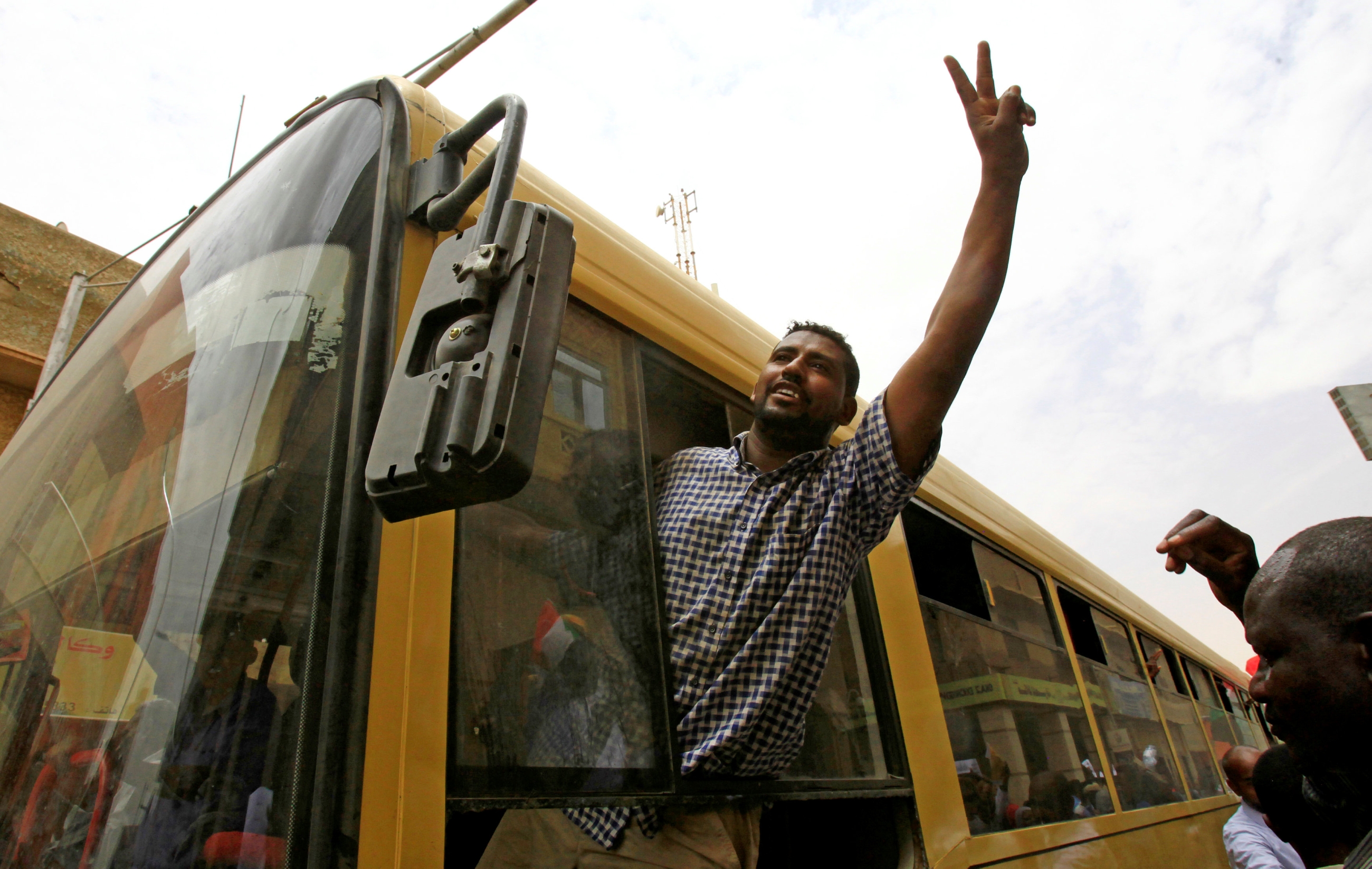
The Sudanese military’s offer on Wednesday of an extended Eid holiday appears to have failed to appease protesters, as opposition leaders vowed to extend the two-day strike until their demands are met.
Thousands of Sudanese have been on strike Tuesday and Wednesday, affecting several crucial sectors and leaving air and bus passengers stranded.
The strikers are demanding the generals who toppled longtime autocrat Omar al-Bashir last month following weeks of protests stand down and hand power to a civilian administration.
Ahead of the industrial action, protest leaders said medics, lawyers and employees in the electricity, water, public transport, telecommunication and civil aviation sectors were set to take part in the strike.
Employees at Sudan’s central bank also set up a picket line in Khartoum.
On Wednesday, the protesters widened their general strike to reach new, important sectors such as oil and pharmaceuticals.
In an attempt to contain the strike, the ruling Transitional Military Council (TMC) brought the official state holiday for Eid al-Fitr forward to Sunday, increasing the days off Sudanese would have around the Muslim festival that lies on Tuesday.
Protesters were unrelenting, however, and vowed not to back down, warning that a fresh, open-ended strike could follow the current one set to be lifted on Thursday morning.
Woman killed
The military has nervously attempted to contain the peaceful civilian protests.
However on Wednesday a dispute between two groups of soldiers standing watch over protesters in central Khartoum turned violent and a woman was killed in an exchange of fire, according to the Central Committee of the Sudanese Doctors. The gunfight reportedly wounded others, too.
Hamad al-Niel, an eyewitness, told Middle East Eye: “A drunk soldier fought with his colleagues and started firing in the air near Nile Street on Wednesday morning, which led to the killing a tea seller and the wounding of other protesters.”
“This is a regrettable incident but also serious indication that the army does not properly know its role,” he added.
On 13 May, at least eight protesters were killed as militiamen reportedly belonging to the Rapid Support Forces (RSF) militia opened fire at protesters close by the site of this latest shooting.
Rebel leader expelled
Further adding to opposition and protest leaders’ ire was TMC’s decision on Wednesday to expel former rebel and leader of the SPLM-N group Yassir Arman from the country.
Arman has been ordered to leave Sudan over a death sentence handed to him by a Sudanese court in 2011 over his participation in a rebellion in South Kordofan and Blue Nile states. The rebel leader had returned to Khartoum following Bashir’s 11 April ouster.
“I received six requests, five of them from TMC deputy chairman and one from TMC chairman himself, ordering me to leave the country, but I will never do it,” Arman said.
Spokesman of the SPLM-N Mubarak Ardol told MEE that Arman would never leave the country, vowing that his group is challenging the TMC as it has no right to prevent its members from visiting the country.
“We see that this development is serious and part of the policies of the old regime that was supposed to have been changed,” he said.
“Unless we participate in the upcoming talks, peace can’t be stabilized in Sudan.”
People stranded
Meanwhile, hundreds of people have been stranded at Khartoum airport over the past two days, as the strike caused many international flights to be cancelled or delayed, while internal flights were stopped completely.
Majid Maali, a would-be passenger on Kenya Airways, told MEE on Wednesday morning that his flight had been delayed for several hours
“The airport was full of army and RSF soldiers and the handling and ground services employees were almost on strike, so all operations at the airport have been disrupted and the flights cancelled or delayed,” he said.
A source at the civil aviation authority told MEE that members of the army and security services have replaced the majority of the staff at the airport in an attempt to keep services going.
RSF officers threatened the striking employees with the sack, the source said under condition of anonymity, adding that the airport is working no more than 40 percent of its capacity.
“The government has replaced the airport employees with people from the security services and others from the military airport, but even that is not enough to operate the airport as usual so the situation is still bad and the travelers have been stranded,” he said.
Strikers holding fast
Employees of Sudan’s central bank escalated their strike on Wednesday, expanding it to all branches in Khartoum and others across Sudan.
In statement seen by MEE, the staff said they ramped up their action after the RSF used violence against them on Tuesday.
'This development is serious and part of the policies of the old regime that was supposed to have been changed'
- Mubarak Ardol, SPLM-N spokesman
“We are expanding our strike today to all branches of the bank to protest the RSF’s storming of the central bank’s headquarters,” it said.
RSF militiamen surrounded and forced their way into the central bank’s main branch in the Sudanese capital on Tuesday, demanding the staff pay them their salaries.
The military’s apparent crackdown on the media was also highlighted on Wednesday.
In a statement, the Sudanese Journalists’ Network (SJN) condemned the arrest of some journalists and the threat of being made redundant that those working in both state and private media have faced.
“In an attempt that looks like the attitude of the former regime, the TMC has ordered the shutdown of the Ramatan media company that served many regional satellite channels,” it said.
Many journalists have joined the strike, with newspapers failing to appear on Sudan’s streets as a result.
“No newspapers were published today in Khartoum other than those that covered the developments of the revolution,” the SJN said.
Military warning
Talks between the TMC and opposition and protest leaders in the Alliance for Freedom and Change movement have ground to a halt.
However, late on Tuesday the TMC’s deputy chairman General Mohammed Hamdan Dagalo, better known as Hemedti, promised to continue negotiations over forming a joint military-civilian administration.
Addressing a meeting of community leaders, Hemedti warned against what he described as attempts to exclude the army from the next government.
“We are still open to reaching an agreement with the Alliance for Freedom and Change on the outstanding issues. But we warned that the army and the RSF are partners with the political parties in the success of the revolution, so any attempt to exclude them will lead to serious consequences” he said.
“We have crucial role in this revolution and I swear that the civilian protesters weren’t able to oust the former regime alone and without the intervention of the national army and the RSF.”
Middle East Eye delivers independent and unrivalled coverage and analysis of the Middle East, North Africa and beyond. To learn more about republishing this content and the associated fees, please fill out this form. More about MEE can be found here.


